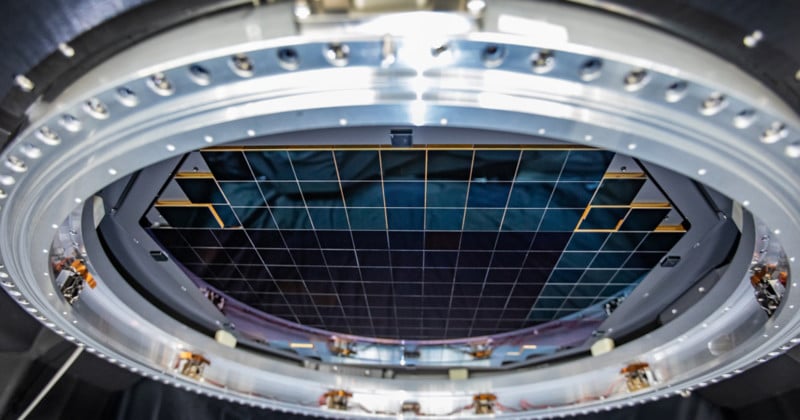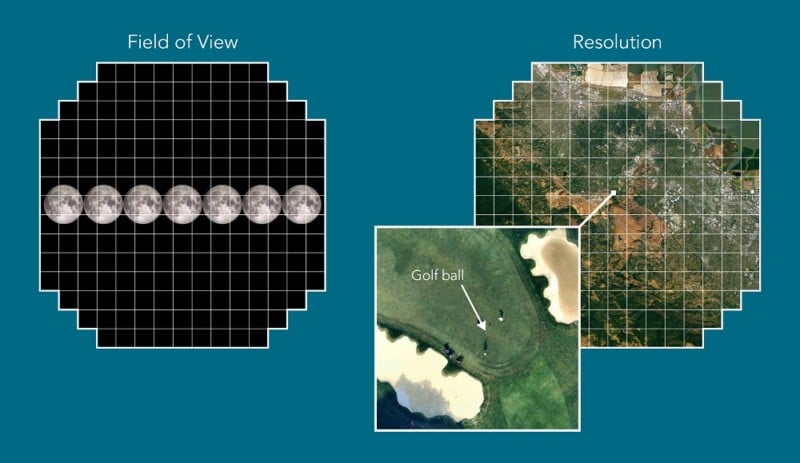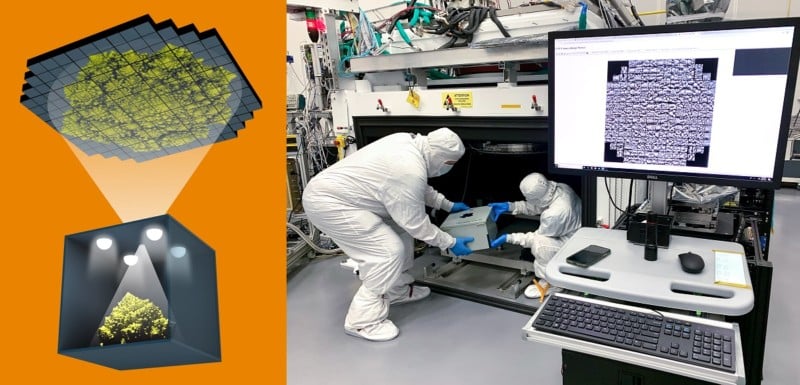Scientists Take World’s First 3,200MP Photos with Sensor Made for World’s Largest Digital Camera
![]()
Scientists at the Department of Energy’s SLAC National Accelerator Laboratory have just captured the world’s first 3,200MP photos using an image sensor array that will become the heart of the world’s largest digital camera. While higher res photos have been stitched together before, these are the largest single-frame digital photographs ever captured.
The sensor array behind this feat should be familiar to PetaPixel readers. Made up of 189 16MP CCD sensors that have been arranged together into a tiled mosaic, the array will become the core of the LSST (AKA the “world’s largest digital camera”) that will eventually live and work at the Vera C. Rubin Observatory in Chile.
For now, however, it’s still being built and tested at the SLAC, and that’s where the world’s first 3,200MP photographs (that’s 3.2 Gigapixels) were captured over the weekend.
The array itself is over 2 feet wide and engineered to extreme specifications. Once in use, it will boast a focal plane wide enough to capture an area of the sky that’s equivalent to about 40 full moons lined up side-by-side. And thanks to the optics and engineering at play, it will allegedly be able to spot objects that are 100 million times dimmer than you can see with the naked eye.
To put that in perspective, the SLAC describes this ability as equivalent to spotting a candle from thousands of miles away.
“This achievement is among the most significant of the entire Rubin Observatory Project,” says SLAC’s Steven Kahn, director of the observatory. “The completion of the LSST Camera focal plane and its successful tests is a huge victory by the camera team that will enable Rubin Observatory to deliver next-generation astronomical science.”


But the real question is: what did they photograph!? And the answer? Broccoli…
No, seriously. Chosen for its highly detailed surface texture, the subject of the world’s first 3,200MP digital photograph was a head of Romanesco, a type of broccoli that you’ve probably seen (but maybe never actually purchased) at the grocery store.
To actually capture the image, the researchers first had to place the array inside a cryostat in order to cool it down to its operating temperature of negative 150 Fahrenheit. The Romanesco was then placed inside a box with internal lighting and a 150-micron pinhole on top, which projected the image directly onto the focal plane sans optics.

Other subjects followed, including a photo of the Flammarion engraving, and a portrait of Vera Rubin (see below).
The full resolution photographs–which are obviously too big to show here–can be explored at the bottom of this page, or you can see low-resolution versions below to get a sense of how this sensor array captures an image:
![]()
![]()
![]()
However, the images themselves and the level of detail they contain are less important than the proof of concept that they represent. After all, the world’s largest digital camera won’t be taking photos of broccoli once it’s up and running.
“Taking these images is a major accomplishment,” said SLAC’s Aaron Roodman, the scientist responsible for the assembly and testing of the LSST Camera. “With the tight specifications we really pushed the limits of what’s possible to take advantage of every square millimeter of the focal plane and maximize the science we can do with it.”
Up next: inserting the sensor—encased in its sub-zero cryostat—into the camera body, before adding on the world’s largest optical lens. So stay tuned, because we expect to see a lot more from the LSST in the near future.
(via Engadget)